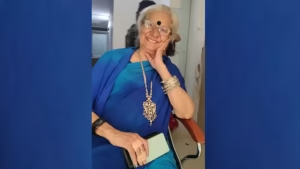Stanford’s Carolyn Bertozzi Wins Nobel Prize In Chemistry 2022

Carolyn Ruth Bertozzi, a 55-year-old American chemist, was awarded the Nobel Prize in chemistry. Known for her wide-ranging work spanning both chemistry and biology, she holds the Anne T. and Robert M. Bass Professorship in the School of Humanities and Sciences at Stanford University. She coined the term “bioorthogonal” for chemical reactions compatichemistryble with living systems at the Royal Swedish Academy of Sciences in Stockholm and was awarded the Nobel Prize in chemistry for her development of bioorthogonal reactions, which allow scientists to explore cells and track biological processes without disrupting the normal chemistry of the cell, just a few days before her 56th birthday next Monday.
The Nobel prizes carry a cash award of 10 million Swedish kronor (nearly $900,000) and will be handed out on December 10.
Bertozzi is a member of the National Academy of Sciences, the Institute of Medicine, and the National Academy of Inventors. Bertozzi’s lab first developed the methods in the late 1990s and early 2000s. Since then, her lab and others have used them to answer fundamental questions about the role of sugars in biology, and to solve practical problems, such as developing better tests for infectious diseases and creating a new biological pharmaceutical that can better target tumours, which is now being tested in clinical trials.
The term “bioorthogonal chemistry” refers to any chemical reaction that can occur inside living systems without interfering with native biochemical processes. The word bioorthogonal comes from the Greek bio, meaning living, and ortogonais, meaning right-angled. Thus, a reaction that goes perpendicular to a living system, thus not disturbing it. The term bioorthogonal coined, which means “not interacting with biology”—grew out of an interest in complex carbohydrate molecules called glycans. Along with proteins and nucleic acids such as DNA, they are one of the key building blocks of life and also one of the least well understood – in large part because they are hard to make in the lab and when Bertozzi began her career, one of the hardest to analyze.
Bertozzi is also known as a prolific mentor, having advised more than 250 undergraduates, graduate students, and postdoctoral fellows. She is an incredible teacher, mentor, and advocate for women and for the LGBTQ communities.
Credits: Stanford NewsTo read the full article, click here.









